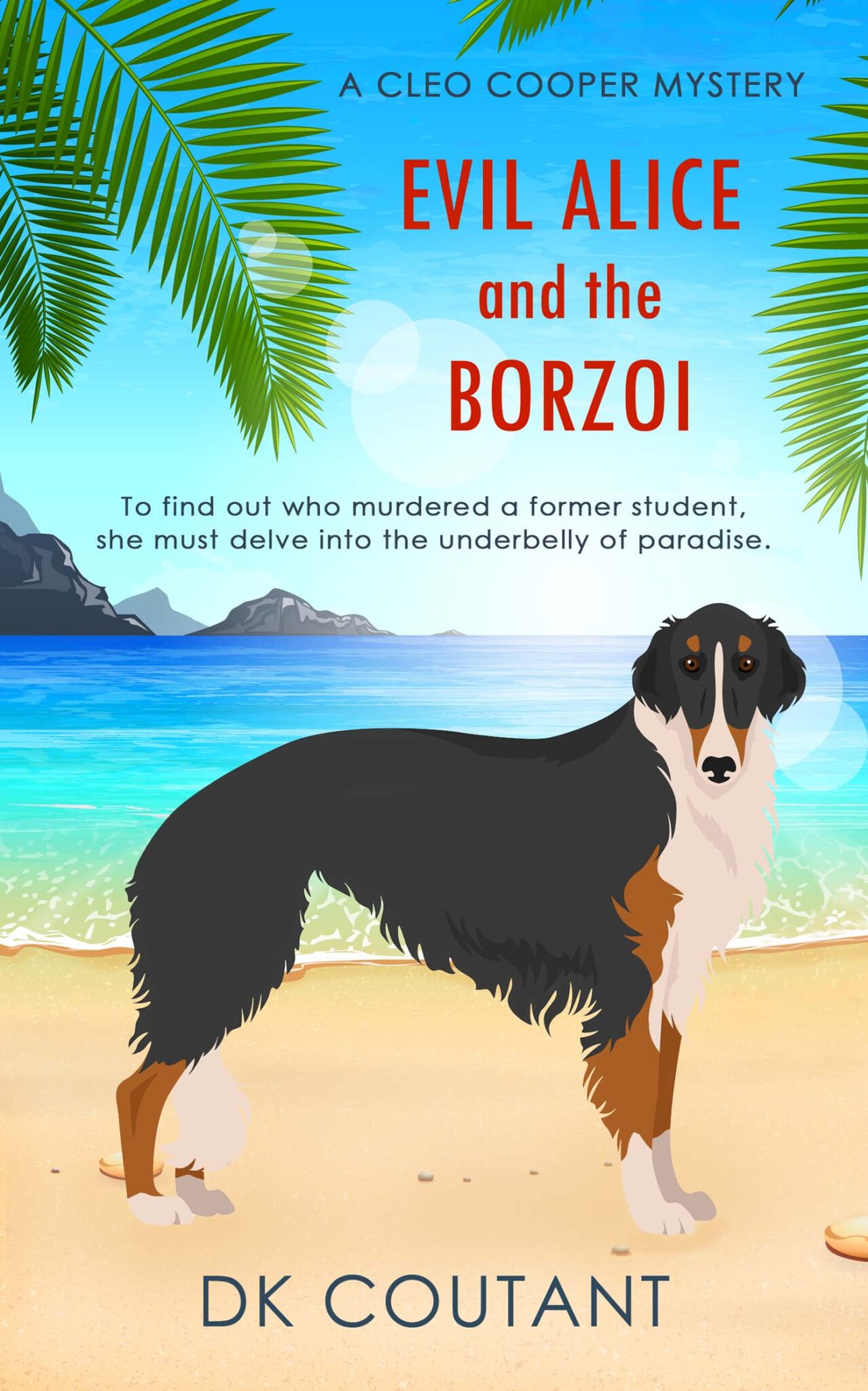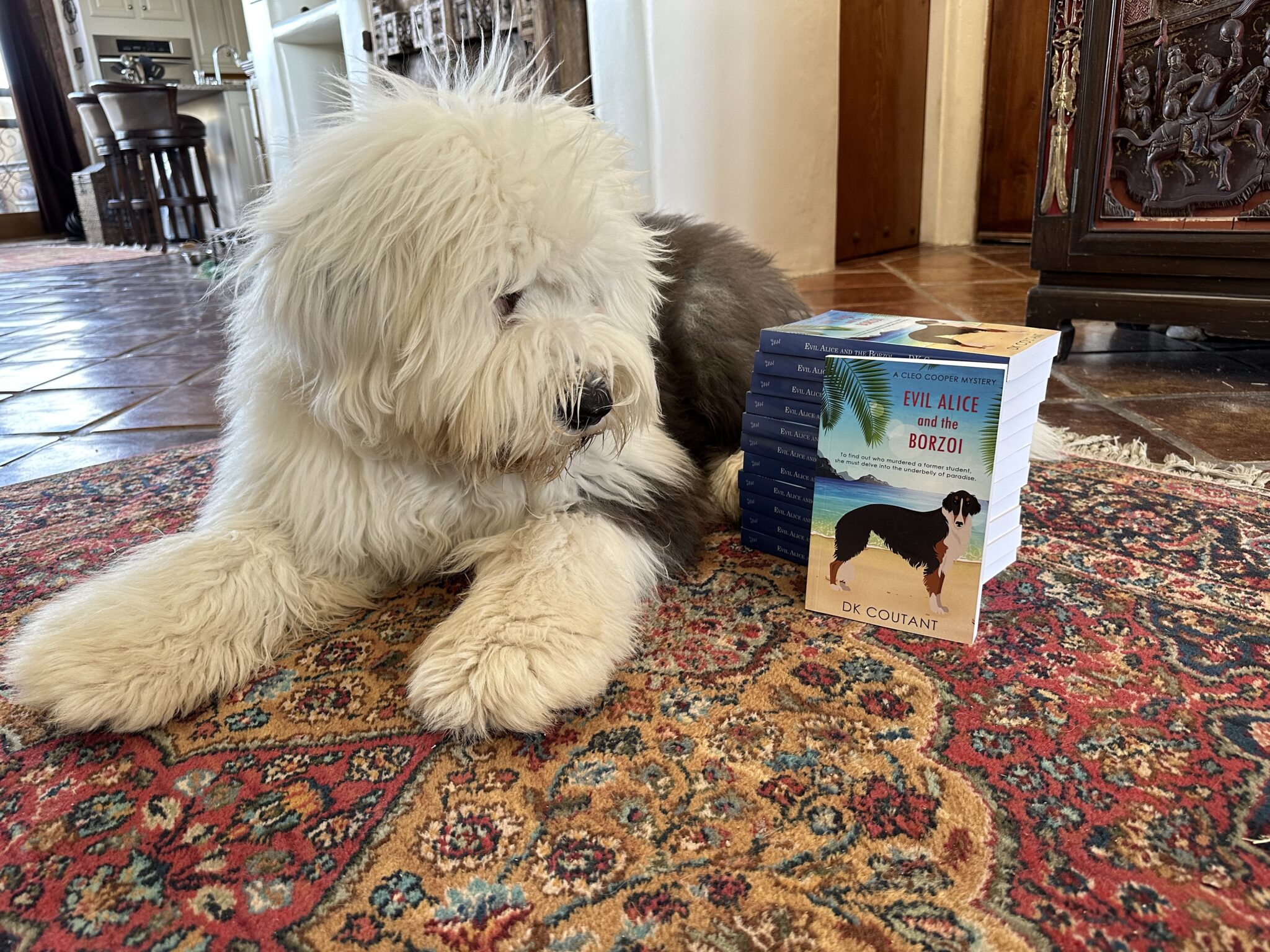Dawna Coutant’s career path took her from being a whale trainer to a psychology professor to a mystery writer. As we await the publication of her second novel, we discuss forecasting in general, Good Judgment, and a very Superforecaster-like story behind the name of her sheepdog.
“It is not a weakness to change your opinion,” she says as her top suggestion to those seeking to advance their forecasting skills. “It shows you’re paying attention.”
GJ: Our Superforecasters have the most fascinating career paths. Yours took you from being a SeaWorld dolphin and whale trainer to Department Chair of the Psychology Department at the University of Hawaii to mystery writer. How did you first become interested in forecasting?
DC: I love a challenge and have always thought my path-not-taken was to become an intelligence analyst. I read a steady diet of spy novels and crime fiction for decades. I’m a terrible liar, so I could never be a spy. But I thought I might be good at analyzing information and drawing accurate conclusions. When I heard the NPR report on IARPA’s forecasting project, and Good Judgment’s team was looking for volunteers, I was delighted to apply. In real life, I was a psychology professor running my own research. It was fun to experience the flip side of the research process as a participant and let someone else worry about confounding variables.
GJ: Could you tell us a little about your path to becoming a Good Judgment Superforecaster?
DC: As a whale trainer, I had to learn to decipher the behavior of 7000-lb animals. To misread their subtle indications meant a dunking, at least, or worse—severe injury. That study of animal behavior led me to pursue a PhD in the scientific study of human behavior. Early into my graduate studies, I realized the substantial effect culture had on human behavior. My focus on cross-cultural psychology inspired me to travel the world, and I now enjoy the benefit of friends and colleagues from a dazzling number of fascinating places. The mysteries I write take my protagonist Cleo around the world and require me to plant small clues she must find to solve the mystery and identify the killer. But forecasting offers me the ultimate opportunity to identify and use clues and culture to predict behavior, often in other countries.
Logistically, I tried a season of GJO and connected with superforecaster Carolyn Meinel, who took me under her wing and encouraged me. However, I was so off on the question on Republican Primary outcomes in 2016 that I gave up forecasting for a while and focused on other endeavors. But Carolyn had a lot of irons in the fire and would pull me in on research proposals that needed forecasters. Our hybrid team (Team KaDSCI) won an IARPA tournament, and on our small team of forecasters, my Brier score was the best until the very end when GJ Superforecaster Emil Dimanchev pulled ahead. The next year Covid hit, and GJ did the Covid Tournament. I finished in the top 10 for beginning and final forecasts. I think I received my invitation to GJ on the basis of my performance in the Covid Tournament and IARPA hybrid competition.
GJ: What is the best thing about being a GJ Superforecaster?
DC: The questions are challenging and often multidimensional. Not just, “Will X-party win,” but “By how many seats”; not just, “Will X invade,” but “Where?” I have to dig deeper and learn more about the political structure of a country or region. I also enjoy my fellow forecasters. They come from all over the world and all professions. And I don’t know many people who are as interested in bizarre esoteric topics as I am.
GJ: What were some of your favorite GJ projects to work on?
DC: I’m drawn to geopolitics. I’m a cross-cultural psychologist by training, and I love applying that expertise to base rates and military analysis. But the great thing about GJ is that there are always new topics, which give me an excuse to dig in and learn about something new.
GJ: Forecasting is a lot of work. How do you manage to keep your forecasts up to date while also traveling and working on your novels?
DC: Slow and steady is my modus operandi. I try to circle back to each question every week to 10 days, and plan on forecasting 2 or 3 questions a day. If I know I’m going to be on the road, I work ahead the week before I leave.
 GJ: Your first Cleo Cooper mystery novel, Evil Alice and the Borzoi, is set on the Big Island of Hawaii and follows a psychology professor who has to descend into the underbelly of paradise in a search for the true killer. Is Cleo Cooper a good forecaster? Does she use any Superforecasting techniques in her investigation?
GJ: Your first Cleo Cooper mystery novel, Evil Alice and the Borzoi, is set on the Big Island of Hawaii and follows a psychology professor who has to descend into the underbelly of paradise in a search for the true killer. Is Cleo Cooper a good forecaster? Does she use any Superforecasting techniques in her investigation?
DC: Solving a mystery is like forecasting in that one looks for telltale signs to assist in predicting and understanding behavior. Cleo isn’t a forecaster per se, but as an amateur sleuth, she focuses on evidence and circles back to challenge her assumptions. Both good techniques for a forecaster. But now you have me thinking… Maybe Cleo will run into a Superforecaster in one of her future investigations.
GJ: Could you share a few details about the second book?
DC: That would be a pleasure: Cleo Cooper, a cross-cultural psychology professor in Hawaii, is on sabbatical in Santa Fe, NM. The air is drier. The people are fabulous. She was looking for adventure, but solving a new friend’s murder was not what she had in mind.
GJ: What’s your forecast for the publication date?
DC: I’m waiting to hear from my publisher, but I forecast a 60% chance of a 2025 release.
GJ: What is the one piece of advice would you give to those looking to improve their forecasting skills?
DC: Don’t be over-confident. Listen to opposing evidence as carefully as to the evidence that agrees with your prediction. And it is not a weakness to change your opinion. It shows you’re paying attention.
GJ: Is there anything else that we have overlooked to ask that would be interesting to our readers?
DC: We have an Old English Sheepdog that we named Beasley, after David Beasley. I disagreed with most of his politics as Governor of South Carolina, but as Director of the UN World Food Program I found him a pragmatic humanitarian. He identified the problem, determined what was needed to address it, and creatively pursued efforts to avoid the tragedy of his dire predictions. It was an important life lesson for me. I could respect and learn something from a person I vehemently disagreed with on other issues.

Schedule a consultation to learn how our FutureFirst monitoring tool, custom Superforecasts, and training services can help your organization make better decisions.